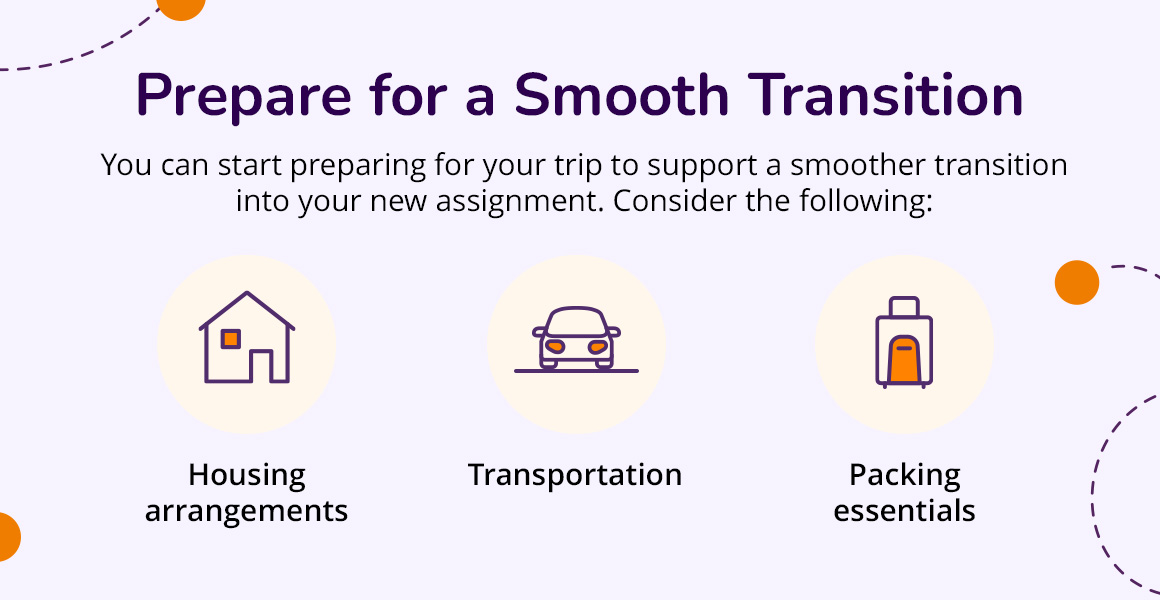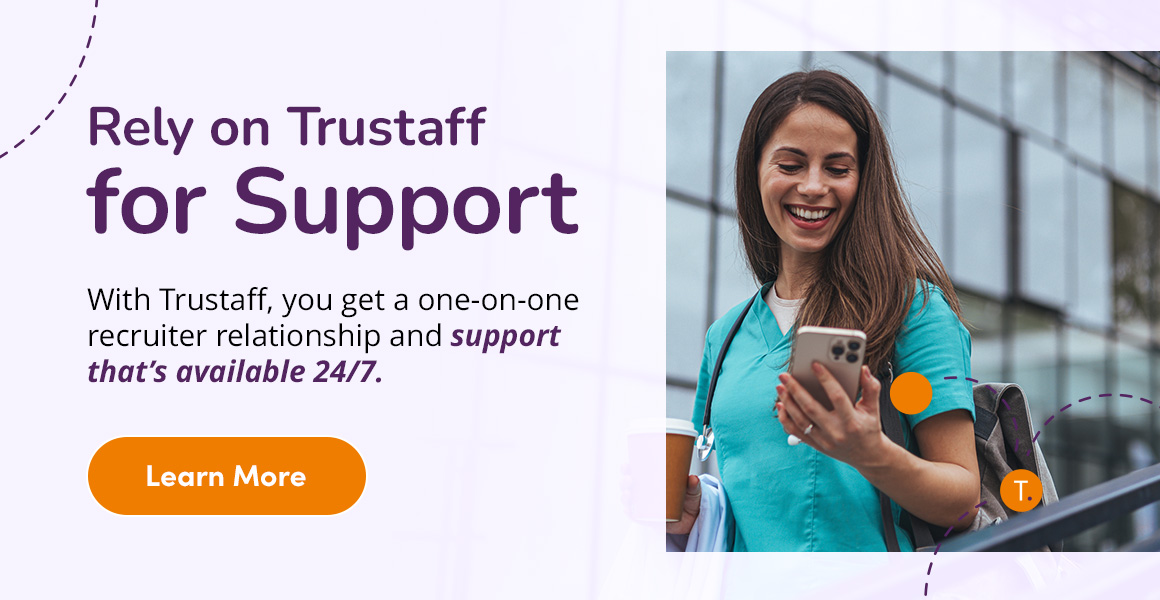An
company | Brands
Navigating Your Compliance & Onboarding
Blog/Navigating Your Compliance & Onboarding
Travel Nursing Onboarding Process
Preparing for your first travel nursing job can be exciting. Just a few more steps to take, and you’ll soon find yourself in a new location with a different work environment and new experiences ahead. That said, before you can begin your first day you must complete all the employment requirements to avoid delays and potential problems.
Learn more about ensuring a smooth onboarding process.
5 Stages of the Travel Nursing Onboarding Process
The travel nurse’s onboarding process involves gathering and submitting any required documents and completing testing, including any that are specific to the health system or unit where you'll be working.
Compliance requirements vary per state and facility. The timeline for completion also varies, depending on whether you already have the documentation you need, such as licenses or certifications.
1. Prepare the Requirements
The first step after you accept a job offer is to prepare your travel nursing documents. Keep them organized and accessible.
Make extra copies in case you need them. You can also keep digital versions securely stored in a cloud-based system, like Google Drive, making them easily accessible and there if something happens to your physical papers.
Here are the documents you need to prepare:
License: You need to be licensed in the state where you will practice. However, if the state you’ll travel to is part of the Nurse Licensure Compact (NLC) agreement, you won’t need to apply for a separate license for that specific state. As of now, 43 jurisdictions are part of the NLC. Some states may offer temporary licenses.
Certifications: Required certifications depend on your specialty. Basic Life Support (BLS), Advanced Cardiovascular Life Support (ACLS) and Pediatric Advanced Life Support (PALS) are some of the common requirements depending on your unit. Completion cards from certifications are valid for two years.
Recent medical records: Healthcare facilities will have their specific requirements. However, expect to include your immunization records as well as your blood test, physical exam and Tuberculosis skin test results.
Typical work documents: Prepare at least two forms of identification, which could be your driver’s license, Social Security card or birth certificate. You also need to fill out your tax paperwork.
Updated resume with references: Keep your updated resume with you and have a digital copy readily available, too. Some companies may require references from past supervisors, and having a written reference available is always a good idea.
Background check authorization form: Most companies ask for background checks, where you will be checked for your criminal and employment history and education. Background checks typically review the past 7–10 years for any criminal history.
Drug screening results: Similar to other jobs in the healthcare field, you will need a urine drug screen before you start.
2. Complete the Online Assessment
Healthcare facilities often require an online assessment based on your specialty. You’ll be assessed on your skills to determine which areas you have experience in. This can also help you understand what’s expected of you in your travel assignment. Nursing skills assessments are usually long and divided into different body systems.
Some facilities may allow you to complete the assessments once you start the job. You should specifically ask the agency or healthcare facility when they expect you to complete these tasks.
3. Prepare for a Smooth Transition

Next, you can start preparing for your trip to support a smoother transition into your new assignment. Consider the following:
Housing arrangements: Be sure to inquire about possible housing stipends when looking for a new place to stay for the duration of your travel assignment. Some agencies provide assistance with housing or can provide recommendations from past travelers in the area.
Transportation: Most travel assignments require you to drive a reliable car, or at least have a consistent, predictable way to get to work. Consider how much maintaining the vehicle and paying for gas will cost you overall.
Packing essentials: Your housing arrangement determines your packing essentials. If you’re staying at an apartment, consider what furnishings are available versus if you may be staying in a furnished hotel suite. Do you need your own towels and bedding? Is there a washing machine? Ensure you know all the details about your new space before traveling.
4. Attend Orientation and Training
You can generally expect orientation to start on your first day. Some facilities may conduct an over-the-phone orientation to help you prepare before you travel. Other facilities provide all training and welcome information through online modules.
You might have a general or unit-specific orientation, depending on your unique position and employer. During this process, expect to learn about the facility's policies, procedures and electronic medical record system. You’ll also be taught how to contact staff from other departments to keep operations smooth.
Travel nurses don’t always get a comprehensive nurse orientation compared to their permanent counterparts. That’s why you need to have sufficient experience to know the best healthcare practices and basic protocols with minimal instruction.
Be sure to ask questions during the orientation to help you adjust to your new workplace better. You may ask about how to locate important resources, like the med room, and the exact scope of your unit and the emergency procedures in place. You can expect the orientation to last your first few days on the job.
How to Increase Your Chances of a Successful Onboarding
Accepting the job offer is only the beginning — you must take the proper steps to complete the credentialing and onboarding process before you can successfully start the job. Failure to comply with the requirements can lead to the cancellation of your travel assignment.
As you go through the four main steps, remember the following tips:
Keep your documents organized in a sturdy folder that you can easily access as well as in a digital file
Be on top of your requirements’ deadlines
If you need additional certifications, consider how long it takes to complete the courses and communicate as needed with your agency
Promptly respond to any additional information requested by the facility
Expect a facility to ask for last-minute changes to your documents
Be flexible and adaptable
Rely on Trustaff for Support
Although accepting a new travel nurse position is exciting, meeting the travel nurse compliance requirements can be overwhelming on your own. When you need help with the process, Trustaff is here for you. Throughout the process, you'll have direct support from not only your recruiter, who is always your primary point of contact, but from a credentialing specialist whose job it is to guide you successfully through the paperwork to your first day on the job.
As a travel nursing agency, we’re your partner in getting the best assignments that fit your preferences and skill sets. Whether you want to secure higher pay or an adventure to a new work location, we’ve got the right resources and experience to make that happen.
With Trustaff, you get a one-on-one recruiter relationship and support that’s available 24/7. If you’re ready to take the next steps, contact us today to learn more.



